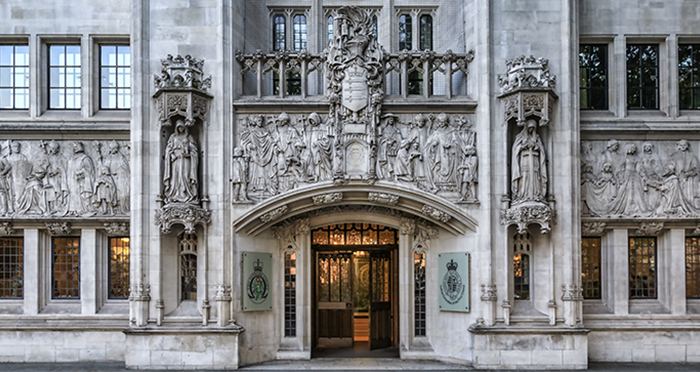Landmark ruling could allow an unmarried mother-of-four to claim a widowed parent’s allowance

Northern Ireland hit the headlines yesterday. And for once, it was not about Brexit and the hard-soft-cold-but-hot border! Siobhan McLaughlin, a widowed mother of four from County Antrim, has become the centre of a media frenzy. This, after her landmark case was decided by the Supreme Court involving the European Convention on Human Rights, widowed parent’s allowance and a detailed 33-page judgment from the UK’s top court.
McLaughlin’s late partner, John Adams, passed on 28 January 2014. Although unmarried they lived together for 23 years and had four children together. Had they been married, John’s contributions to her would have been enough for McLaughlin to claim a widowed parent’s allowance — a social security benefit granted under section 39A of the Social Security Contributions and Benefits (Northern Ireland) Act 1992.
McLaughlin applied for the benefit after her partner’s passing but was denied due to the strict wording of the Northern Ireland Act that only granted the benefit to once married widows. McLaughlin appealed. Her case rested on the incompatibility of the Northern Ireland Act and Article 14 of the European Convention of Human Rights (ECHR). It states:
“The enjoyment of the rights and freedoms set forth in this Convention shall be secured without discrimination on any ground such as sex, race, colour, language, religion, political or other opinion, national or social origin, association with a national minority, property, birth or other status.”
First her case went before the High Court where the judge agreed with her position. The case was appealed to the Court of Appeal which decided against her. Finally, the case was brought to the Supreme Court which yesterday announced 4:1 (Lord Hodge dissenting) that section 39A of the Northern Ireland Act is incompatible with the ECHR. In the majority judgment four questions were raised:
1. Does the decision of granting or not granting widowed parent’s allowance by a state authority fall within an Article of the ECHR?
The actual decision was irrelevant for this stage. Merely the fact that the state made a positive action to either grant or not grant a benefit brings the case within Article 8 of the ECHR. Denial of a social security benefit is also firmly within Article 1 of Protocol 1 of the ECHR — the protection of property.
Want to write for the Legal Cheek Journal?
Find out more2. Has there been a difference in treatment between two persons in analogous situations?
A previous case (Shackell v United Kingdom) went before the European Court of Human Rights in 2000 in which the court held inadmissible a claim by an unmarried woman to widow’s benefit. This was distinguished in the majority decision. The Northern Ireland Act, which McLaughlin applied for the payment under, grants the payment for the benefit of rearing children — the status of marriage plays no role in that as the court found at paragraph 26. Very progressive. So she has been treated differently to those in analogous situations.
3. Is that difference of treatment on the ground of a relevant status?
McLaughlin was treated differently because of her marital status. This counts as an ‘other status’ under Article 14 ECHR.
4. Was the different treatment objectively justified — did denying McLaughlin the payment pursue a ‘legitimate aim’?
Governments within the EU and ECHR framework can pursue legitimate policy aims (don’t let any Brexiteers hear you say that!). Although promoting marriage and civil partnership is a legitimate aim, denying McLaughlin the payment was not a proportionate measure. The benefit exists to allow the continued rearing of children following the death of a parent. Protecting children’s rights trumped the promotion of marriage — and rightly so.
So, with that said, the court concluded: “Children should not suffer this disadvantage because their parents chose not to marry”. Finally, the court held section 39A of the Northern Ireland Act incompatible with the ECHR and the administrative decision will be overturned in due course.
This opens up the progression for non-traditional relationships having access to the legal rights everyone should. The court emphasised that simply not being married and being denied the payment was not the focus. Rather, because McLaughlin and her late husband lived as though married, raised children, and so on, that made the denial by the Northern Irish body discriminatory. But still, this continues a wave of progressive decisions and legal change in the UK.
Conor McCavana is studying law at Murdoch University in Perth, Western Australia. He has aspirations of becoming a corporate lawyer.


Please bear in mind that the authors of many Legal Cheek Journal pieces are at the beginning of their career. We'd be grateful if you could keep your comments constructive.